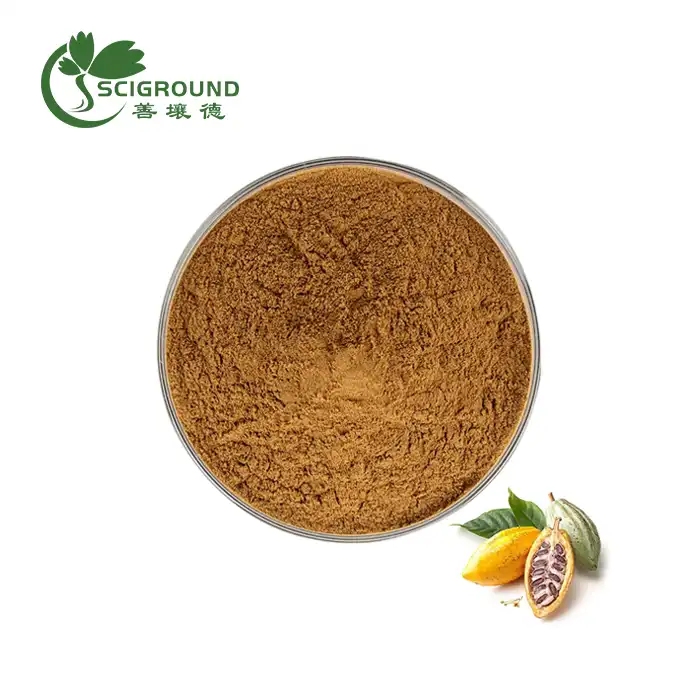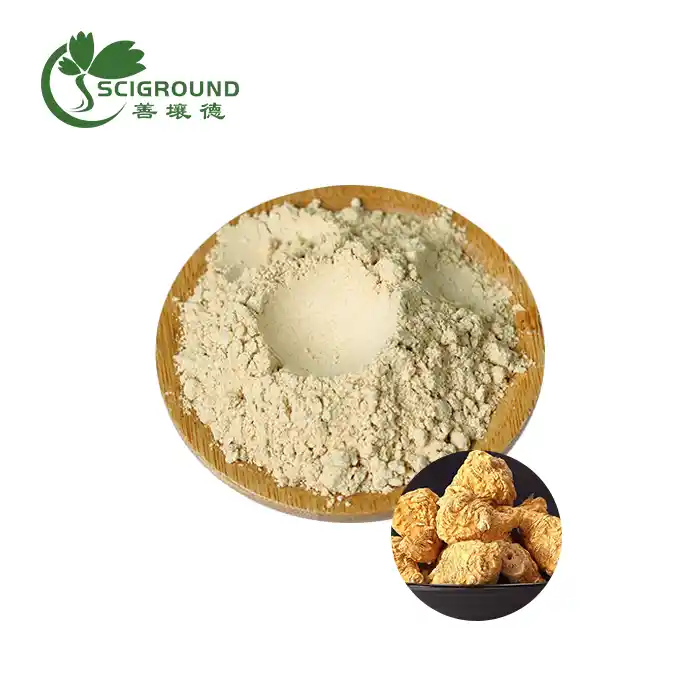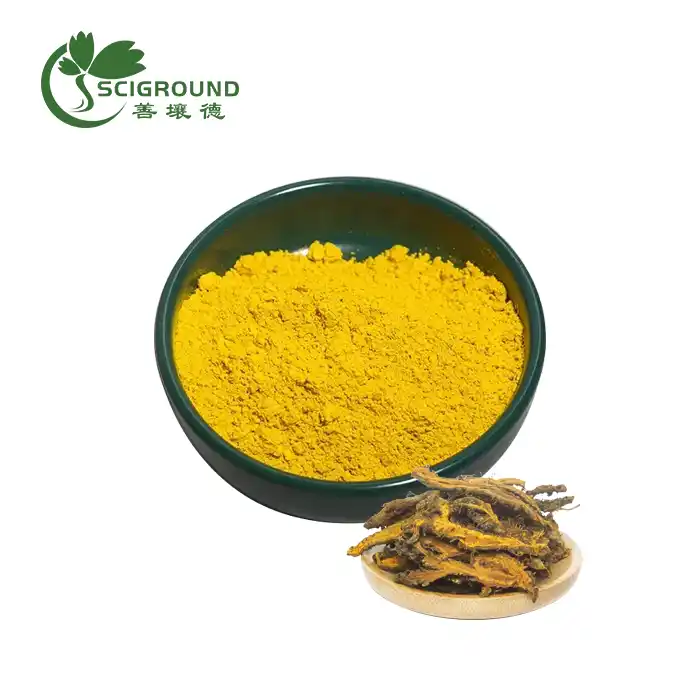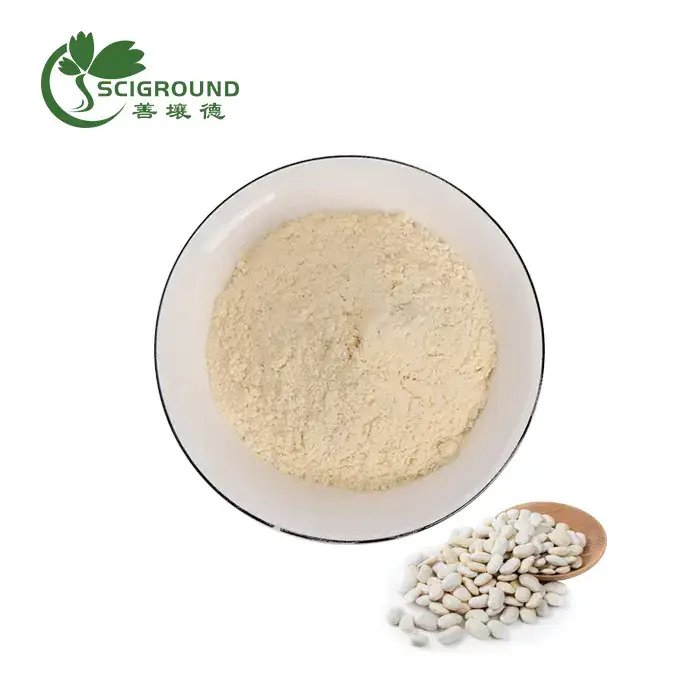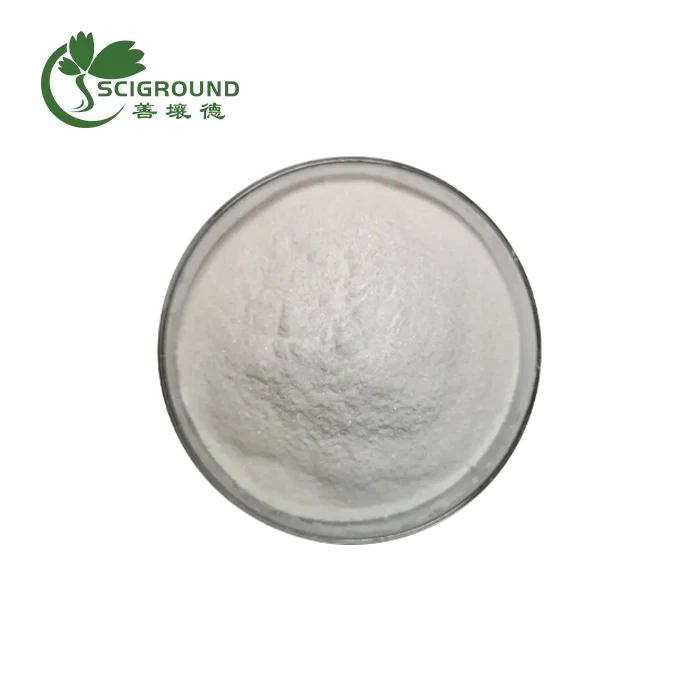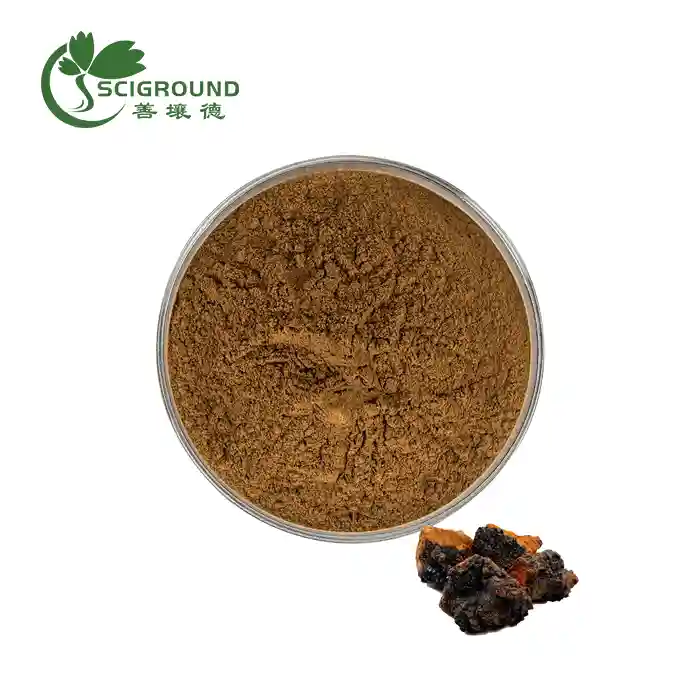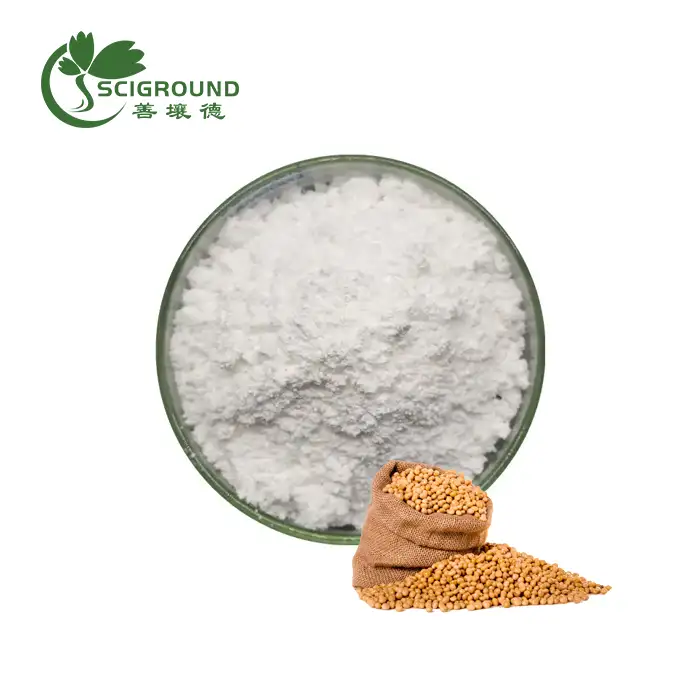Fisetin Benefits
Fisetin is a bioactive molecule found in plants that science has shown to have antioxidant, anti-inflammatory, and other properties that support health. Keep reading as I provide an in-depth look at what fisetin is, where it’s found, its benefits for cells and DNA, and proper dosage and precautions.
Fisetin is a senotherapeutic that may extend lifespan and healthspan; it has potent senolytic effects that destroy senescent cells that accelerate aging and disease. Fisetin has also been studied for its role in fighting oxidative stress and inflammation, supporting brain health, and preventing cancer cell growth.
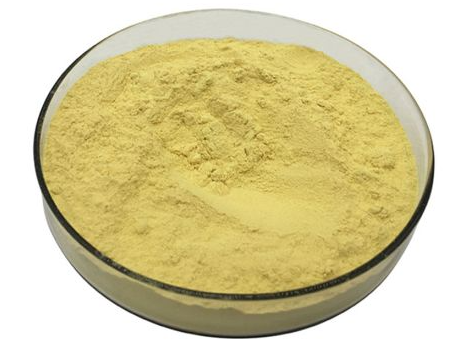
What is Fisetin?
Fisetin (3,3’,4’,7-tetrahydroxyflavone) is a flavonol, a type of flavonoid subgroup of polyphenols. It is found naturally in certain fruits and vegetables.
Structurally, fisetin consists of a flavone backbone with four hydroxyl groups (OH) attached, giving it strong antioxidant capabilities. The unique chemical structure of fisetin appears to be responsible for its diverse health benefits.
Flavonoids like fisetin are plant compounds, providing pigment to fruits and vegetables. Over 8,000 flavonoid compounds have been identified to date. Besides fisetin, common examples include quercetin, catechins, anthocyanins, and more.
In Which Foods is Fisetin Found?
Fisetin can be found in various plant-based foods, though the concentrations tend to be relatively low. Some of the best food sources are:
Strawberries - Strawberries contain high levels of fisetin compared to other fruits. Just 3.5 ounces provides about 2-5 mg.
Onions - Red onions are a good source, with levels around 0.5 mg per 100 grams. Cooking onions does not appear to reduce fisetin content.
Mangoes - The skin and pulp of mangoes contain fisetin, providing around 2-4 mg per fruit.
Persimmons - These bright orange fruits are especially rich in fisetin, with some varieties providing 10 mg per 100 grams.
Acai berries - Studies show acai berry juice and pulp contain approximately 0.5-1 mg per 100 grams.
Kiwi - The skin of kiwis contains the highest fisetin amounts, with whole kiwis providing about 2 mg per 100 grams.
Ginkgo biloba - This unique tree species contains fisetin in its leaves and nuts, traditionally used in herbal medicine.
As you can see, it would take eating large amounts of these foods to obtain just a few milligrams of fisetin. That's why fisetin supplements have grown in popularity for those seeking its benefits.
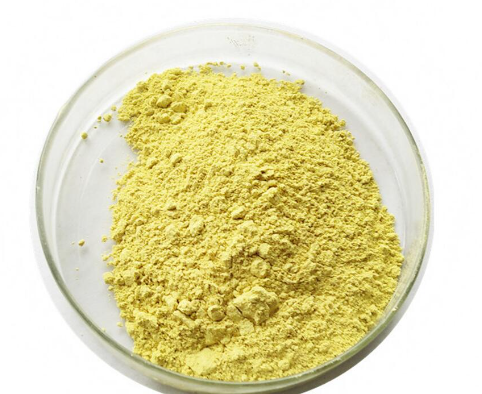
Key Health and Anti-Aging Benefits of Fisetin
Extensive research in recent years suggests fisetin has broad benefits for health through a variety of mechanisms. Let's explore some of the top ways fisetin may support wellness and anti-aging:
1. Powerful Antioxidant Activity
One of the key benefits of fisetin is its potent antioxidant properties. The unique structure of fisetin extract allows it to readily neutralize free radicals and reduce oxidative stress at both high and low concentrations.
Studies have found the antioxidant capacity of fisetin rivals or exceeds those of other flavonoids like quercetin, resveratrol and catechins. The antioxidant activity of fisetin helps combat the effects of aging caused by oxidative damage.
2. Anti-Inflammatory Effects
Chronic inflammation is at the root of most diseases. Research indicates fisetin can inhibit pro-inflammatory markers. This helps reduce inflammation, potentially relieving inflammatory conditions.
For example, studies on cells and mice found fisetin could suppress inflammation pathways like NF-κB, COX2, and cytokines. More research is needed, but the anti-inflammatory effects of fisetin appear highly promising.
3. May Help Prevent Neurodegenerative Diseases
One fascinating benefit of fisetin powder is its potential to help maintain brain health and prevent cognitive decline associated with aging.
Animal studies show fisetin can enhance long-term memory, reduce markers of brain aging, and may help prevent neurodegenerative disorders like Alzheimer's disease. More research is underway exploring how fisetin supports optimal brain function.
4. May Support Healthy Aging and Longevity
Research in the past decade suggests pure fisetin has potential anti-aging benefits that help promote healthy longevity. Studies in cells and animal models indicate fisetin may be able to extend lifespan by 10-20%.
The mechanisms are not fully understood, but fisetin appears to help regulate multiple aging pathways. It activates sirtuins and AMPK, inhibits mTOR, reduces DNA damage, curbs cellular senescence, and has other effects to slow the aging process.
5. May Support Bone Health
Some early evidence suggests fisetin promotes bone growth and may help prevent bone loss associated with aging.
One study in mice found fisetin could enhance osteoblast differentiation and activity. This led to increased bone mass, improved bone markers, and higher bone density compared to untreated mice. More studies are needed to confirm such bone-protective effects in humans.
6. May Help Maintain Cellular DNA Integrity
DNA damage accumulates over time and is considered one of the hallmarks of aging. Research indicates fisetin may help maintain DNA integrity and stability in cells.
In studies, fisetin activated DNA repair pathways, reduced DNA double strand breaks, inhibited chromosomal aberrations, and displayed other DNA-protective effects. By supporting healthy DNA, fisetin may help combat cellular aging.
7. Supports Healthy Lipid Levels
High lipid levels like cholesterol and triglycerides are risk factors for many diseases. Studies suggest fisetin may support healthy lipid profiles.
Animal research found fisetin could lower plasma levels of total cholesterol, LDL cholesterol and triglycerides. This indicates fisetin may aid cardiovascular health by helping maintain normal lipid levels already in the healthy range.
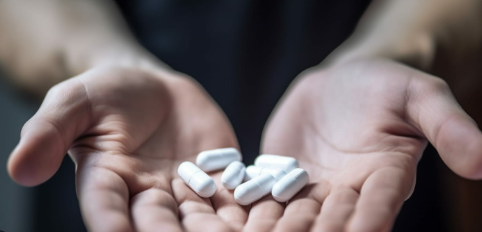
What is a Safe Fisetin Dosage?
Human studies on fisetin bulk powder have used dosages between 10-25 mg per day without adverse effects. Doses up to 800 mg per day have also been well tolerated.
However, there isn't enough research yet to determine an optimal fisetin dosage. Given its safety at high doses, there appears to be a wide margin of intake. But more studies are still needed on long-term fisetin intake at varying amounts.
For everyday supplementation, a fisetin dosage of 25-100 mg per day is reasonable based on current knowledge. This provides enough to benefit from its antioxidant and anti-inflammatory activities.
Of course, always follow dosage directions on any fisetin supplement product and consult your healthcare provider with questions.
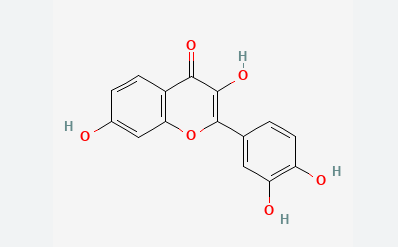
Are There Any Fisetin Side Effects or Precautions?
Current research indicates fisetin is generally well tolerated by humans with a low risk of side effects at typical dosages. Headaches, gastrointestinal issues like diarrhea, and skin flushing may occasionally occur.
However, there are some precautions to keep in mind with fisetin:
May interact with anticoagulants like warfarin and antiplatelets, increasing bleeding risk.
Could potentially cause low blood pressure in some individuals.
Lack of data on long term intake over months or years.
May be unsafe for children or pregnant/nursing women until more studies are done.
As with any supplement, it's recommended to start with lower fisetin doses under medical supervision to check individual tolerance, especially if taking any medications or have a medical condition.
Choosing a Quality Fisetin Supplement
Look for fisetin supplements made by reputable manufacturers at pharmaceutical production facilities. They should provide third party testing to verify purity and potency.
Fisetin powder is optimal, as it absorbs quickly into bloodstream. Check that there are no unnecessary additives or fillers. Products with at least 25-100 mg fisetin per serving offer flexibility for dosing.
With more clinical research, the unique health benefits of the flavonoid fisetin will become clearer. For now, studies suggest it warrants consideration as part of a regimen to support overall wellness and healthy aging.
Fisetin FAQ
Here are answers to some frequently asked questions about the nutritional compound fisetin:
Does fisetin really work?
Research indicates fisetin has antioxidant, anti-inflammatory, anti-aging and other effects that provide health benefits. However, larger scale human studies are still needed. Anecdotal reports suggest fisetin supplementation improves markers of health and aging.
What are the side effects of fisetin?
At recommended dosages, fisetin is generally well tolerated with few side effects. Headache, diarrhea, nausea, and skin flushing may infrequently occur. It may interact with blood thinners. Long term intake is not well studied yet.
Who should not take fisetin?
Pregnant or breastfeeding women should avoid fisetin until more research is done on safety. People taking blood thinner medications may need to avoid fisetin due to potential additive effects on bleeding. Those with upcoming surgery should stop fisetin 2 weeks prior.
Can I take fisetin every day?
Daily fisetin supplementation appears to be safe based on current knowledge. Studies used daily doses for weeks or months with no serious side effects. However, there is no long term data available yet on daily intake for years.
How should I take fisetin?
Fisetin capsules or powder can be taken daily with food and water. It’s best absorbed when taken with fats or oils. Dosages between 10-100 mg daily are often used. It’s ideal to start with lower doses like 25 mg to assess personal tolerance.
Which is better quercetin or fisetin?
Fisetin and quercetin are both beneficial flavonoids. For antioxidant capacity, fisetin looks more potent in studies. Fisetin may also be better for anti-aging pathways. However, quercetin has its own advantages. Combining both may provide a broader range of benefits.
What is the best source of fisetin?
The best source is taking a direct fisetin supplement, as food sources provide only small amounts. Strawberries, acai berries, persimmons, onions and ginkgo biloba contain trace amounts. But a supplement provides optimal, consistent fisetin amounts for benefits.
Does fisetin slow aging?
Studies show fisetin activates anti-aging pathways and enzymes involved in lifespan extension. In mice, it increased lifespan by 10-15%. More research is needed, but current evidence suggests fisetin may help slow the aging process through its influence on multiple biological pathways.
Is resveratrol better than fisetin?
Fisetin and resveratrol are both beneficial flavonoids with some overlapping functions. However, research suggests fisetin may be more potent than resveratrol for antioxidative and senolytic (anti-aging) effects. The combination of fisetin and resveratrol could be advantageous. But fisetin looks very promising on its own.
Can fisetin reverse aging?
It’s unlikely any single compound can fully reverse aging. However, studies show fisetin has multi-targeted anti-aging effects, from antioxidant protection to senolytic activity, that suggest it may help slow or even reverse some aspects of aging when taken regularly. More clinical data is needed to know if fisetin can meaningfully impact biological age.
If you have any intrest, please contact us at email:info@scigroundbio.com.
References:
Maher P. “Fisetin acts on multiple pathways to reduce the impact of age and disease on CNS function.” *Frontiers in Bioscience (Landmark edition)*, vol. 20, Jan 1 2015, pp. 139-162.
Currais A. “Fisetin reduces the impact of aging on behavior and physiology in the rapidly aging SAMP8 mouse.” Journals of Gerontology Series A: Biomedical Sciences and Medical Sciences, vol. 73, no. 3, Mar 2018, pp. 299–307.
Prasath G. “Fisetin improves glucose homeostasis through the inhibition of gluconeogenic enzymes in hepatic tissues of streptozotocin induced diabetic rats.” European journal of pharmacology, vol. 723, Feb 2014, pp. 268–274.
Maher P., Dargusch R., Bodai L., Gerard P.E., Purcell J.M., Marsh J.L. “ERK1/2 and p38 MAPK control MMP-2, MT1-MMP, and TIMP action and affect cell migration: a comparison between mesangial cells and glioma cells.” Journal of cellular physiology, vol. 210, no. 1, Jan 2007, pp. 135-147.
Kang W., Hong HJ., Guan J., Kim DG., Yang EJ., Koh G., Park D., Han CH., Lee YJ., Lee DH. “Fisetin stimulates osteoblast differentiation via Runx2-mediated transcriptional activation.” Journal of cellular physiology, vol. 227, no. 6, Jun 2012, pp. 2831-2837.
Maher P., Dargusch R., Bodai L., Gerard P., Purcell JM, Marsh JL. “ERK1/2 and p38 MAPK control MMP-2, MT1-MMP, and TIMP action and affect cell migration: a comparison between mesangial cells and glioma cells.” Journal of cellular physiology, vol. 210, no.1, Jan 2007, pp. 135-147.
ABOUT AUTHOR

Celine Xu is a botanist with over 15 years of experience researching and developing plant extracts for nutritional and pharmaceutical applications. She leads an R&D team focused on identification, cultivation and extraction of medicinal plants. Celine Xu earned a Ph.D. in Plant Biology has authored numerous articles in peer-reviewed journals about the health benefits of specific phytochemicals. She frequently speaks at industry conferences about new developments in plant extract research. Celine Xu is dedicated to advancing the scientific understanding of how targeted plant compounds can be used to improve human health.
Related Industry Knowledge
- What is Organic Grifola Frondosa?
- what is Amikacin?
- Why is Vitamin B2 Important to the Body
- Is L Lysine bad for the kidneys?
- What is hydrolyzed wheat protein?
- Can you take astragalus on an empty stomach?
- Is bulk creatine monohydrate good?
- What foods contain Dihydromyricetin?
- Tongkat Ali Extract Powder: Everything You Need to Know
- Is Pueraria Lobata Powder the Magic Solution for Menopause and More?
